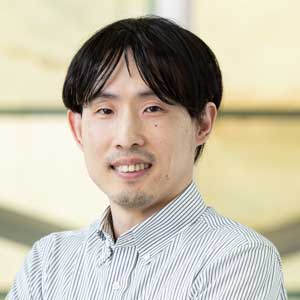
Yoshihide Wada
Professor, Plant Science
Biological and Environmental Science and Engineering Division
My team uses systems science to unravel complex socio-economic and environmental issues and to co-develop interdisciplinary solutions with stakeholders.
Program Affiliations
Biography
Professor Yoshihide Wada's research interests include integrated assessments of the biosphere (climate, ecosystems, natural resources) and socio-economy in order to holistically evaluate the current and future state of national and global resources constraints and their impacts on economy and finance toward water, food, energy, and ecosystem security under climate change. He has worked with various in-Kingdom stakeholders, including MEWA, MOE, MEP, NEOM, Royal Commission of AlUla, King Salman Park Foundation, and KAPSARC, to provide locally relevant yet upscalable solutions to the Kingdom of Saudi Arabia. Prior to joining KAUST in 2022, he was Director of Biodiversity and Natural Resources Program (>100 staff members) at International Institute for Applied Systems Analysis, and he held a joint appointment as a Chair Professor of Global Water and Food Security at Utrecht University, Netherlands. He has worked with many development banks and international organizations and has been contributing to various international policy mechanisms including IPCC, IPBES, UNCCD, and G20. He is a fellow of the American Geophysical Union and has produced more than 350 publications with citations close to 10,000 each year.
Research Interests
Professor Wada's research focuses on delivering locally and nationally relevant solutions that have been co-developed with relevant stakeholders at the forefront of interdisciplinary science. He has worked with various stakeholders in the Kingdom to support the Saudi Green Initiative, construction of the largest urban park development in Riyadh, regional scale hydrogeological and hydrogeochemical assessment at NEOM, ecosystem restoration efforts in AlUla, and feasibility assessment of renewable energy technology in Saudi Arabia. In the past, he also led various projects with development banks including World Bank, Inter-American Bank, Asian Development Bank, Global Environmental Facility, and the Austrian Development Agency to translate robust scientific knowledge to local and regional policy development, such as the East Africa Economic Development Plan. His passion lies in nurturing the next generation of scientists and policy makers who will be change makers for socioeconomic development and nature conservation.
Education Profile
2015-2017 Japan Society for the Promotion of Science (JSPS) Oversea Research Fellow at NASA GISS and Columbia University, USA
2013-2015 Research Scientist, Department of Physical Geography, Utrecht University, The Netherlands
2013 PhD Hydrology (Cum Laude), Department of Physical Geography, Utrecht University, The Netherlands
2008 MSc Hydrology and System Earth Modeling (Prestige Master), Department of Earth Sciences, Utrecht University, The Netherlands
2006 MIA International and Environmental Studies, Institute of Environmental Studies, Graduate School of Frontier Sciences, The University of Tokyo, Japan

